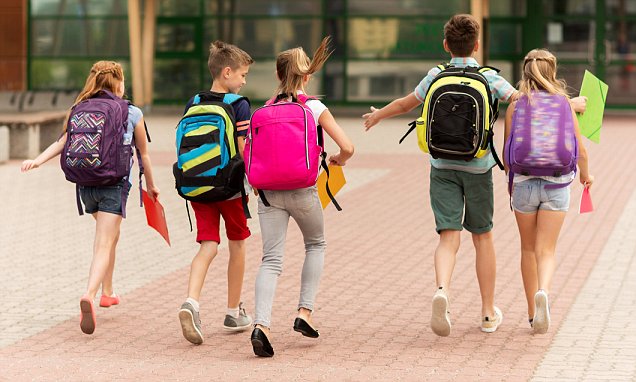TORONTO: Parents, take note! Backpacks may not harm your child’s back if they contain a reasonable amount of weight and fit correctly, a Canadian study claims.
“To put parents’ minds at rest, recent literature suggests there is little evidence to support links between backpack use and pain,” said Michael Holmes, an assistant Professor at Brock University in Canada.
Holmes said while several systematic reviews have been done, it has been difficult to link usage of backpacks to poor biomechanics and ultimately back pain or damage.
“My philosophy is that, for the most part, as a parent you don’t have to worry too much about it,” Holmes said.
“If a backpack has a reasonable amount of weight in it and fits correctly, children are not wearing it long enough for long-term damage to occur,” he said.
To assist with the myth busting, Holmes offers a scenario to help put parents’ concerns into context.
“For a nurse, who lifts hundreds of patients a day over a long career, there is a cumulative loading effect on the spine that will eventually cause damage to the spine. It is a main reason why back pain in nurses or caregivers is so prevalent,” Holmes said.
“By comparison, kids are strong and resilient. In the event that fatigue does occur, they recover fast,” he said.
However, when given the choice, Holmes does recommend backpacks over shoulder bags, messenger bags or purses, as they keep the body balanced.
“Bags worn on one shoulder create an asymmetry of what muscles are being used, which can load the spine in undesirable ways,” Holmes said.
“There are a lot of good ergonomic principles in modern packs today, so if there is one item to invest in, it’s a good backpack,” Holmes said.
“Simply purchasing a good pack is only half the battle; it needs to be worn properly. We are all guilty of just throwing a bag over one shoulder and going, so even the best-designed pack and interventions are not going to prevent human nature,” he said.
Holmes and Associate Professor Gail Frost said a good backpack should have a waist strap to distribute the load more to the hips, as well as keep it closer to the body to improve balance and reduce demands on muscles.
Wide, padded shoulder straps, which are more comfortable on the shoulders and neck prevent the weight from being concentrated on one area. (AGENCIES)
Trending Now
E-Paper


